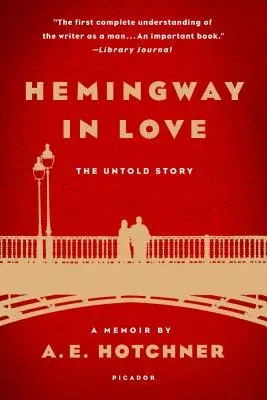Hemingway's deeply reflective account of his destructive Paris affair
and how it affected the legendary life he rebuilt after, as told to his
best friend, the writer A.E. Hotchner.
In June of 1961, A. E. Hotchner visited a close friend in the
psychiatric ward of St. Mary's Hospital. It would be the last time they
spoke--three weeks later, Ernest Hemingway returned home, where he took
his own life. Their final conversation was also the final installment in
a saga that Hemingway had unraveled for Hotchner over years of world
travel.
Ernest always kept a few of his special experiences off the page,
storing them as insurance against a dry-up of ideas. But after a near
miss with death, he entrusted his most meaningful tale to Hotchner, so
that if he never got to write it himself, then at least someone would
know. In characteristically pragmatic terms, Hemingway divulged the
details of the affair that destroyed his first marriage: the truth of
his romantic life in Paris and how he gambled and lost Hadley, the great
love he'd spend the rest of his life seeking.
But the search was not without its notable moments, and he told of
those, too: of impotence cured in a house of God; of back-to-back plane
crashes in the African bush, one of which nearly killed him, while he
emerged from the other brandishing a bottle of gin and a bunch of
bananas; of cocktails and commiseration with F. Scott Fitzgerald and
Josephine Baker; of adventure, human error, and life after lost love.
This is Hemingway as few have known him--humble, thoughtful, and full of
regret.
To protect the feelings of Ernest's wife, Mary, who was also a close
friend, Hotch kept these conversations to himself for decades. Now he
tells the story as Hemingway told it to him. Hemingway in Love puts
you in the room with the master and invites you to listen as he relives
the drama of those young, definitive years that set the course for the
rest of his life and dogged him to the end of his days.

